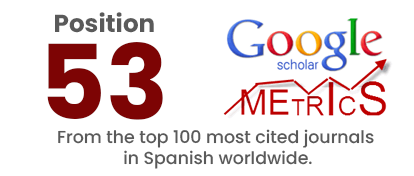Medical training in Latin America in the face of the challenges of CRES+5 and the University 4.0
DOI:
https://doi.org/10.36097/rsan.v1i63.3763Keywords:
CRES 5, Higher Education, Medical Education, University 4.0Abstract
CRES+5, a follow-up meeting to the Regional Conference on Higher Education for Latin America and the Caribbean, was recently held. It addressed the most relevant challenges faced by Higher Education Institutions in contributing to sustainable development. These challenges particularly impact medical education, and align with the demands of University 4.0, to guide the training of physicians amidst current requirements and the serious health problems in the Latin American region. To analyze the most significant challenges to medical education in Latin America derived from CRES+5 and University 4.0, to contribute to the responsible fulfillment of its social mission. The study was based on documentary analysis of specialized literature, and theoretical methods linked to the authors´ professional experience. Medical education must prioritize teacher preparation, a relevant curriculum, and a focus on science and innovation as essential pillars to ensure quality. These actions must align with the principles of University 4.0 and Education 4.0, which promote strategies to train physicians capable of fulfilling their social mission responsibly.
Downloads
References
Almuiñas, J, & Galarza, J. (2014). La dirección estratégica y su contribución al mejoramiento de la calidad en la Educación Superior. Universidad Juárez del Estado de Durango, Artes Gráficas La Impresora.
Atherton, G. (2022). The equity crisis: Higher education access and success to 2030. National Education Opportunities Network (NEON). https://www.educationopportunities.co.uk./news/new-report-warns-of-global-higher-education-equity-crisis/
Buzzi, A. (2012). Historia de la educación médica. Revista Argentina de Transfusión, 38(3), 193-198. https://pesquisa.bvsalud.org/gim/resource/ru/lil-722028
de Barrera, J. H. (2010). Metodología de la investigación: guía para la comprensión holística de la ciencia. Quirón ediciones. https://acortar.link/yEFtzK
Diaz Contino, C. G., Delgado, J. C., Gómez García, F., & García Coello, A. (2024). Diseño curricular en educación médica: Experiencias de la Universidad San Gregorio de Portoviejo. Revista San Gregorio, 1(59), 124-133. https://doi.org/10.36097/rsan.v1i59.2538
Engovatova, A., & Kuznetsov, E. (2016). A A Plan for the Grow of the Knowledge Economy in Russia. Russia Direct. From University, 1, 5-9. https://doi.org/10.1088/1757-899X/953/1/012056
Flexner, A. (1910). Medical education in the United States and Canada: a report to the Carnegie Foundation for the Advancement of Teaching. Carnegie Foundation. https://pubmed.ncbi.nlm.nih.gov/12163926/
Goić, A. (1989). The Edinburgh Declaration. Revista Médica de Chile, 117(1), 78-80. https://europepmc.org/article/med/2577096
Gómez, M. (2002). El análisis documental: base metodológica de la investigación científica. ACIMED, 10(1), 52–60. http://scielo.sld.cu/scielo.php?script=sci_arttext&pid=S1024-94352004000200011
González, M., Silva, P., & Ríos, J. (2023). La interprofesionalidad en la educación médica: un enfoque necesario para el futuro de la salud en Latinoamérica. Revista de Educación para la Salud, 11(1): 60-65. https://doi.org/10.1016/j.resedusci.2023.01.007
Hennis, A. (2024). Leading causes of death and disease burden in the Americas: Noncommunicable diseases and external causes. Executive summary. https://iris.paho.org/handle/10665.2/59568.
Hernández, P, & Ruiz, M. (2022). La importancia de la formación humanística en la educación médica en América Latina. Revista Iberoamericana de Ciencias de la Salud, 6(4), 78-85. https://doi.org/10.33881/rics.v6i4.2345
Hernández Sampieri, R., Fernández Collado, C. & Baptista Lucio, P. (2014). Metodología de la investigación. McGraw-Hill. https://dialnet.unirioja.es/servlet/libro?codigo=775008
López, A., Torres, M., & Medina, R. (2023a). Formación continua y desarrollo profesional en medicina: perspectivas desde Latinoamérica post-COVID-19. Revista de Medicina y Salud Pública, 17(1), 50-57. https://doi.org/10.1016/j.rmsap.2023.01.006
López, M., Martínez, A., & Gómez, R. (2023b) Innovaciones en la enseñanza de la medicina: una revisión en el contexto latinoamericano. Educación Médica, 24(1), 12-20. https://doi.org/10.1016/j.edumed.2023.01.005
Mintz, Z. (2014). The future of higher education. https://www.insidehighered.com/blogs/higher-ed-gamma/future-higher-education.
Naciones Unidas. (2015). Transformar nuestro mundo: la Agenda 2030 para el Desarrollo Sostenible. https://unctad.org/system/files/official-document/ares70d1_es.pdf
Organización de las Naciones Unidas para la Educación, la Ciencia y la Cultura. [UNESCO]. (2024, 13 al 15 de marzo). Reunión de seguimiento de la Conferencia Regional de Educación Superior (CRES+5), Brasilia, Brasil. https://cres2018mas5.org/
Organización de las Naciones Unidas para la Educación, la Ciencia y la Cultura. [UNESCO]. (2022). Calidad y relevancia de los programas en educación superior. Documento de Referencia Tema 4. Education 2030. Conferencia Mundial de la Unesco, Barcelona, España https://www.unesco.org/es/higher-education/2022-world-conference.
Pan American Health Organization. [PAHO]. (2024). Leading causes of death and disease burden in the Americas: Noncommunicable diseases and external causes. https://doi.org/10.37774/9789275128626
Pedroza, R. (2018). La universidad 4.0 con currículo inteligente 1.0 en la cuarta revolución industrial. RIDE Revista Iberoamericana Para La Investigación Y El Desarrollo Educativo, 9(17), 168 - 194. https://doi.org/10.23913/ride.v9i17.377
Ramírez, B., Ortega, J., & Cifuentes, A. (2022). Aprendizaje basado en problemas en la formación médica: una experiencia en universidades latinoamericanas. Revista de Innovación Educativa, 4(2), 100-110. https://doi.org/10.33881/rie.v4i2.5678
Rojas Paredes RA. (2023). La educación superior para el 2050. Desafíos y oportunidades para un futuro no tan lejano. Revista Educación Superior Y Sociedad (ESS), 35(1), 152-178. https://doi.org/10.54674/ess.v35i1.751
Richard, E. (2024). Role of research in Health Sciences training. Revista Gregoriana de Ciencias de la Salud, 1(1):6–9. https://doi.org/10.36097/rgcs.v1i1.3097
Sánchez, J., Pérez, L., & Castro, F. (2023). Estrategias para la enseñanza de la ética médica en Latinoamérica: un enfoque práctico. Revista de Ética Médica, 12(1): 25-30. https://doi.org/10.1016/j.remed.2023.02.004
Topol, E. & Masters, K. (2022). AI in Medical Education: Ethical Dilemmas. The Lancet Digital Health. https://www.thelancet.com/journals/landig/home
Downloads
Published
How to Cite
Issue
Section
License
Copyright (c) 2025 Judith Galarza López, Eugenio Radamés Borroto Cruz

This work is licensed under a Creative Commons Attribution-NonCommercial-NoDerivatives 4.0 International License.


















